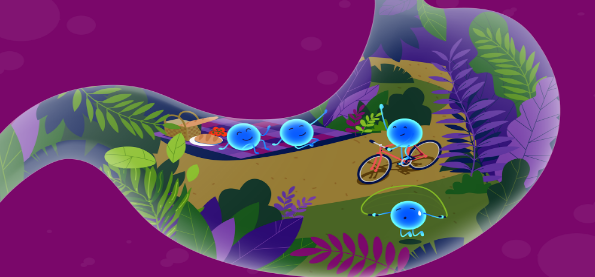
After a year of lockdown, we’re all a bit more sluggish and a bit less motivated, and this has taken a toll on our eating habits. It’s time to set some simple goals with diet to heal our gut and restore healthy gut flora. Gut health is intricately associated with and crucial to our overall health, including maintaining a healthy weight and youthful skin.
A happy gut will boost your energy, mood, and immunity and give you that gorgeous glow. Active cultures are indeed good for you. Anyway, enhancing your gut health goes beyond snacking on Greek yoghurt. Exercise, sleep, mindfulness, meditation, and other lifestyle habits have just as much influence on your health as food choices. If you are amid a detox or ready to embark on one, attending to the well-being of your gut is critical. Check out these seven ways to help you build a better gut.
Meditate 10 minutes each day to ease up the mind and body. Stress damages the gut microbiome, and mindfulness and meditation can help reduce stress and support gut health.
Make Mealtimes Quiet Time
One of the best things one can do to cheer up good gut health is to eat in a relaxed state. Make mealtimes a mindfulness affair:
Prevent stressful or difficult conversations, and be certain to eat slowly while chewing well.
Take the time to focus on and enjoy your food entirely.
Try to eat in a peaceful, pleasant environment.
Eat Fermented Foods, and Take Probiotics
A healthy and balanced body ecosystem is essential to the well-being of your gut. Beneficial intestinal flora assists in the digestive process, help the body fight foreign substances, makes B vitamins more absorbable, and is vital to proper detoxification. You can support digestion, the good bugs in your gut and avoid dehydration by eating fermented foods, taking a high-quality probiotic supplement, eating fibre-rich and a variety of protein-dense foods, and being sure to drink pure, filtered water.
Avoid Food That Cause Sensitivities
Some foods are delicious and fulfil an emotional need, but may leave us with an impaired gut and symptoms like bloating, fatigue, indigestion, and chronic inflammation. Over time this harm can lead to chronic and severe illnesses. Eliminating while also identifying which diet you may be sensitive to is key to vibrant health and a healthy gut. The most common trigger foods are gluten, dairy, alcohol, and refined and processed sugars. Sensitivities can also happen with any whole food, such as strawberries, or citrus fruits. Avoid refined carbohydrates and focus on nutrient-dense carbohydrate sources. Reduce consumption of caffeine-containing products and limit caffeine consumption to 1–2 cups before noon.
Get Enough Sound Sleep Each Night
A good night’s rest is excellent for deep tissue repair and healthy hormone and neurotransmitter production. There is simply no substitute for just enough deep and restorative sleep. Sleep loss can negatively affect the ratio of gut bacteria and cause other health problems. Creating a good sleep environment is a great practice to maintain. Sleep in a room that is 64°–69° F (17.8°–20.6° C) to support sleep quality, dim the lights and shut devices off at least one hour before hitting the bed, make your bedroom calm and peaceful for sleeping and aim for regular sleep and waking times.
Physical Activity
Moderate daily physical activity does remarkable things for the beneficial bacteria in the gut and helps with toning, digestion, and motility. No need for overly strenuous workouts, though: about half an hour per day of vigorous exercises, such as strength and weight-bearing (like free weights or yoga), is perfect. Incorporating either professional massage or self-massage weekly can stimulate neurotransmitters like serotonin, the production that helps to improve the gut-brain connection.
Spending a minimum of 10 minutes in direct sunlight daily can enhance vitamin production, which aids in supporting the function of the gut microbiome.
Small lifestyle changes can have a significant influence on the health and diversity of the gut microbiome. The health of the gut is connected to many aspects of one’s overall wellness, including cognitive health, the immune system, digestion, disease prevention, sleep health, and so much more. Reconstructing a healthy inner ecosystem after years of stress, unhealthy food choices, and poor eating habits can take time and patience. Emphasising a gut-friendly lifestyle, with ongoing cleansing support and a whole food diet, will have you well on your way to improved nutrient absorption, better mood, and a happier and more vibrant you!




